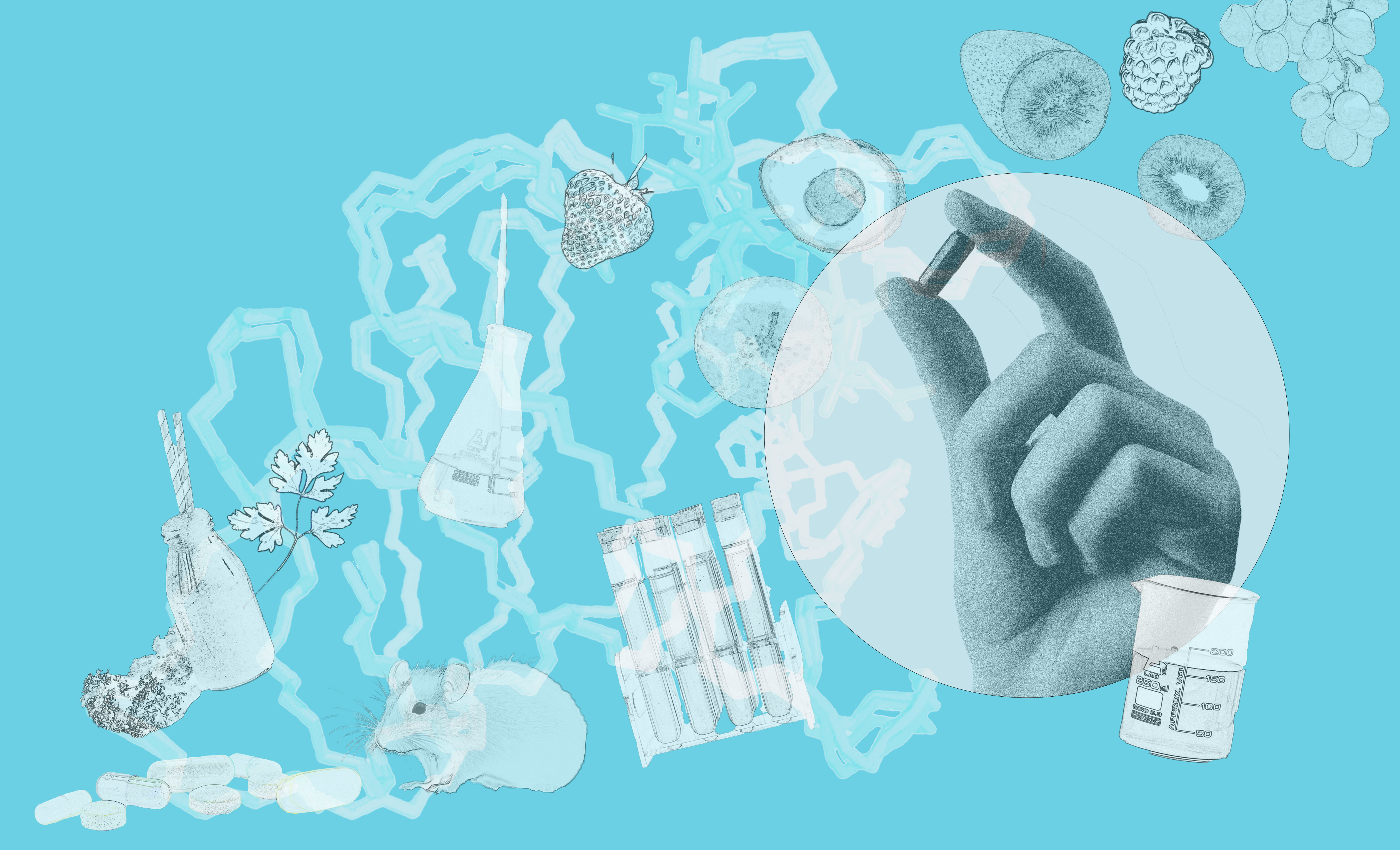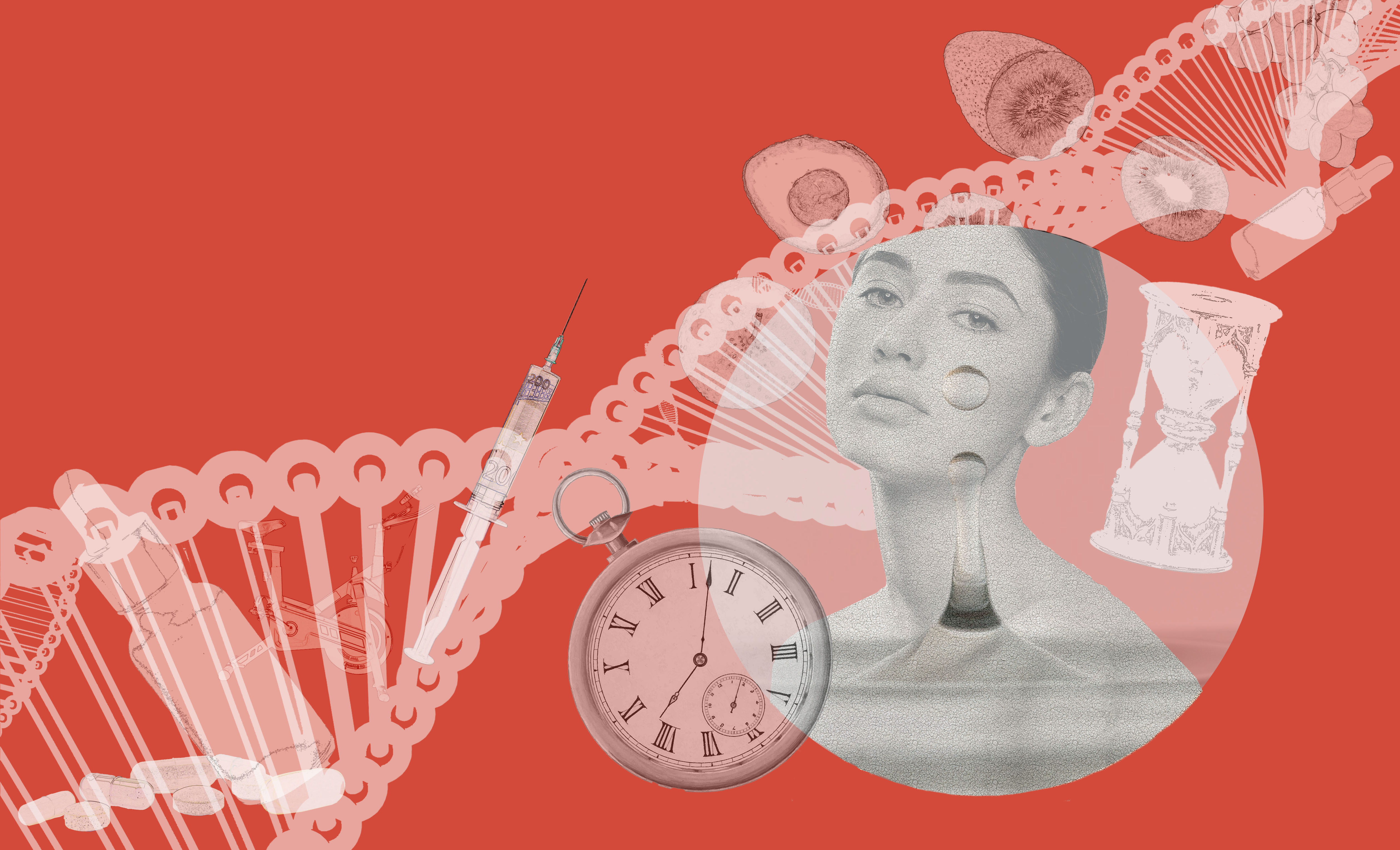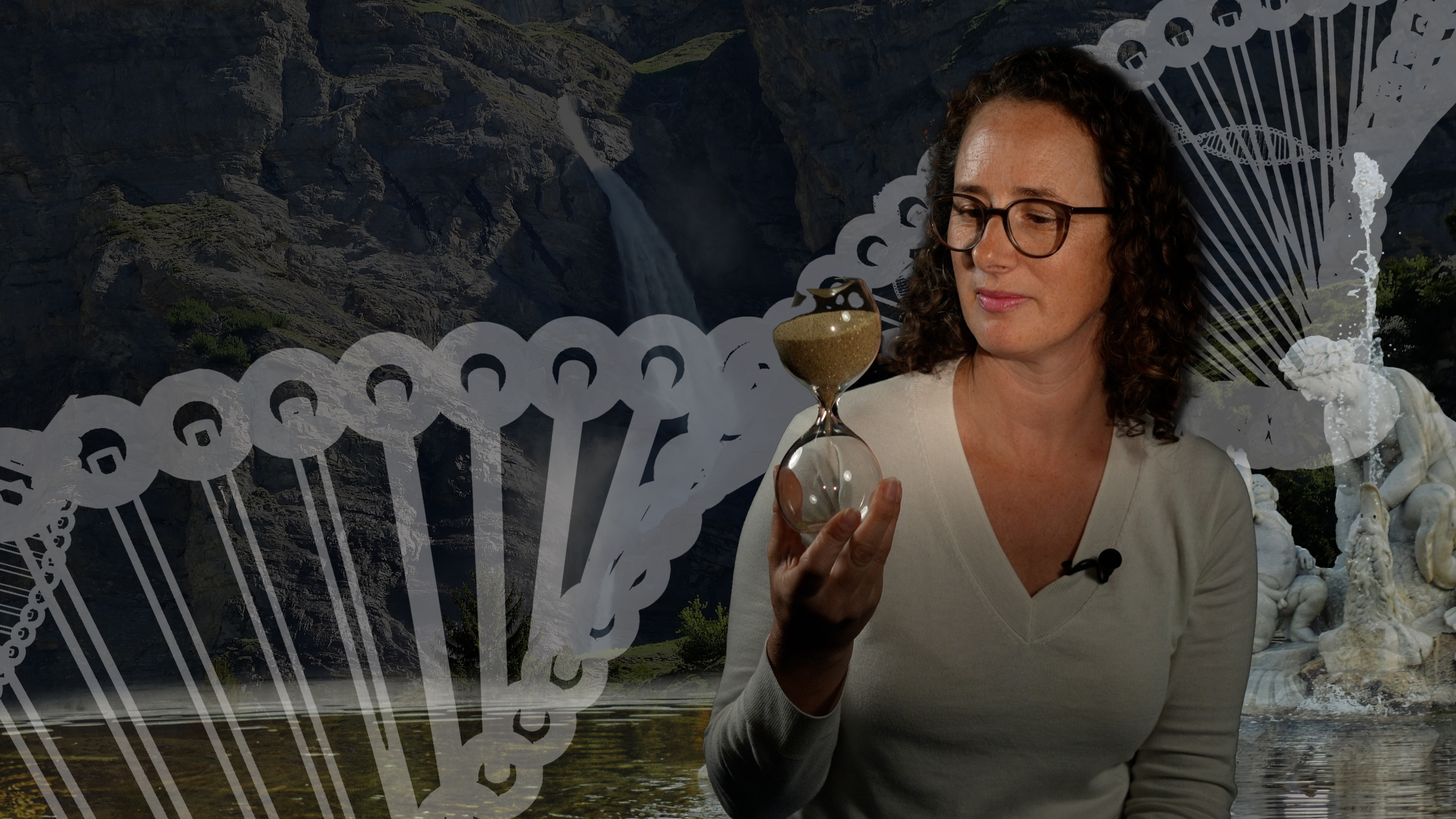The Basel researcher whose work triggered a longevity revolution

Over 30 years ago Michael Hall, a molecular biologist at the University of Basel, made a groundbreaking discovery of the gene Target of Rapamycin, or TOR, that proved critical to the development of many cancer drugs. Today his seminal work is fuelling one of the fastest growing, and potentially lucrative, areas of healthcare research – longevity.
Michael Hall is a virtual unknown in today’s social media-inflated longevity scene. He hasn’t published any books on why we age or been featured in any films on the secrets of centenarians. He doesn’t have a side business selling supplements or spout the benefits of hyperbaric oxygen or redlight therapy – treatments found in many of today’s longevity clinics.
The soft-spoken 71-year-old, who bears a striking resemblance to American actor Robert DeNiro, credits his own health and vitality to the basics: “exercise, a good diet, social interactions, and possibly good genes,” he told SWI swissinfo.ch during a visit to his office in Basel.
People have been searching for the secrets to longevity for centuries. Huge advances in the science of ageing and technology such as AI in the last decade have given scientists reason to believe we are on the cusp of a major breakthrough. This has fuelled a new longevity movement with clinics and companies popping up in many parts of the world such as Saudi Arabia, the US and Switzerland, offering sophisticated tests, novel therapies, and a world of promises.
Switzerland has been a key player in the pursuit of eternal youth dating back centuries when people came from across the globe to experience the healing powers of its thermal baths. Swiss wellness clinics, scientists, investors and pharmaceutical companies have all advanced the longevity field. But how much is the latest longevity trend just hype and good marketing? Can we really extend our lifespan and why do we want to?
This article is part of a series investigating the growing longevity trend and Switzerland’s role in it. You can find all the articles and videos in the series at the bottom of this article.
Hall’s absence from the current longevity craze is all the more incredible given that his research is widely considered to have transformed our understanding of ageing, and potentially how to slow it.
In the early 1990s he discovered a gene in yeast that acts like a circuit breaker in the cell, regulating cell growth and metabolism in response to nutrients around it. He named it Target of Rapamycin, abbreviated to TOR, after the bacterium rapamycin discovered in the 1960-70s, which became an immunosuppressant drug widely used in organ transplants. The gene was given the name mTOR when it was found in mammalsExternal link.
TOR also impacts cellular processes that happen as we age. Taking a drug like rapamycin inhibits TOR, activating autophagy, the cell’s own process of cleaning out old, damaged tissue and proteins that accumulate in the cell as we age.
Study after study show that rapamycin extends the lifespan of multiple animal species. There is now a rapidly growing community of longevity enthusiastsExternal link, such as US celebrity physician Peter AttiaExternal link, experimenting with rapamycin as an anti-ageing drug based on Hall’s original findings more than 30 years ago.

More
Longevity clinics: modern-day snake oil or the key to healthy ageing?
Despite his contributions to the longevity field, Hall doesn’t consider himself an expert on ageing. He focused his research on the basic science behind TOR and how it could be used to tackle cancer.
He’s received numerous awards for his work, but it wasn’t until 2024 that he was honoured for his contribution to the field of ageing. Last November he was awarded the Balzan Prize – given to four people each year for their achievements in the arts, humanities and sciences – for his “groundbreaking contributions” to our understanding of the biological mechanisms of ageing.
First brush with longevity
Hall first encountered the science of ageing long before he was a scientist. A wealthy eccentric uncle had the ambition to live to 100 and was planning an expedition to interview and conduct a physical examination of “vigorous centenarians” around the world. He was joined by another of Hall’s uncles, who was a medical doctor, and Alexander Leaf, then head of medicine at Massachusetts General Hospital and a friend of Hall’s.
“I jokingly asked if they needed someone to carry their bags. My uncle said, sure,” said Hall, who had just finished undergraduate studies in zoology at the University of North Carolina. “This was the 1970s. Nobody was talking about ageing like they are today.”
Their mission was disappointing, however. “We didn’t find a lot of vigorous centenarians,” said Hall. An obituaryExternal link of Alexander Leaf in the New York Times in 2013 noted that the expeditions, sponsored by the National Geographic Society, had been criticised, as some of the very old people interviewed turned out to have lied or been misinformed about their ages.

Although the trip made no major discoveries, it still left a mark on Hall. “It made me interested in ageing as a scientific endeavour,” he said. Although he went on to do a PhD in molecular biology at Harvard University in the late 1970s, he continued to follow the field from a distance.
In the 1980s and 1990s there was “too much nonsense” in the ageing field for him to take it seriously though. “It was like a three-ring circus with a bunch of wackos walking around. Anyone off the street, looking to make a few bucks, was an ageing expert,” said Hall, who recalls seeing people at conferences walking around in robes dressed as Father Time. “There were very few real scientists doing work on ageing.”
Big discovery
Hall decided research into ageing wasn’t for him and continued down the path of molecular biology. “I wanted to understand the machinery behind how a protein gets transported into the nucleus of a cell”, which provides critical insight into how cells operate, he said. Problems in that process have been linked to diseases like cancer, viral infections, and neuro-degenerative disorders.
After undertaking postdoctoral research in nuclear protein import at the University of California, San Francisco, he wanted to continue his work elsewhere. Swiss-Austrian biochemist Gottfried Schatz convinced Hall to join him at the Biozentrum, the molecular biology research institute at the University of Basel.
Hall’s research got off to a rocky start until a postdoc student named Joe Heitman joined his team. Heitman suggested looking at how immunosuppressant drugs work to understand how information passes through the cell surface to the nucleus.

More
How Switzerland became a longevity hot spot
At the time, immunosuppressant drugs like rapamycin “were exciting because they were the basis of a revolution in medicine,” said Hall. They made organ transplants viable because they prevented the immune system from attacking a foreign organ. They “somehow slowed the growth of immune cells by blocking the nuclear import of a signal,” said Hall. “But beyond this, very little was known about how these drugs worked.”
The discovery of TOR by Michael Hall and his team was the result of a long and convoluted journey that began in 1964 when a group of scientists from Canada went on an expedition to Easter Island, also known as Rapa Nui, in search of exotic microbes that might be used for drugs—in this case, antifungal drugs. They brought back soil samples and gave them to other scientists, who subsequently found a bacterial species in one of the samples that produced a compound with immunosuppressant properties.
The compound was named rapamycin after Rapa Nui and eventually approved as an immunosuppressant drug by the US Food and Drug Administration to prevent rejection in organ transplants. Rapamycin and its derivatives, such as everolimus, were subsequently approved as treatments for various cancers and other conditions.
Over the next decade Hall and his team made a number of major discoveries by studying rapamycin in yeast cells. Their first major findingExternal link was published in 1991 in the medical journal Science and identified two hitherto unknown genes – TOR1 and TOR2 – that when mutated, were resistant to rapamycin’s effects on the cells.
The team sequenced the gene to identify the protein encoded by it. Further research found that TOR is a central controller of cell growth, something Hall describes as one of his most gratifying discoveries. “Looking back, it seems incredible that this fundamental aspect of biology was not known. There are so many diseases like cancer that are based on aberrant cell growth,” said Hall.
As a result of this discovery, pharmaceutical companies went on to develop a new class of cancer drugs known as mTOR blockers, including everolimus, which is sold under the brand name Afinitor by Swiss firm Novartis.
From cancer to longevity
Hall’s discovery of TOR as a key regulator of cell growth and metabolism also offered insights into why we age. When TOR slows down by taking a drug like rapamycin or fasting, it supercharges a cleaning process in the cell called autophagy, which becomes less effective as we get older. Without autophagy, damaged cells accumulate, which can lead to age-related conditions such as osteo-arthritis and neurodegeneration.
A major breakthrough came in 2003, when a scientistExternal link from the University of Fribourg in Switzerland found that blocking TOR in worms increased their lifespan by 20-30%. “This was huge, and really opened the floodgates to research on TOR and ageing,” said Hall.
Researchers began testing the drug rapamycin on mammals that have more genetic similarities with humans. In 2009, researchersExternal link in the US found it extended the lifespan of mice by 14% in females and 9% in males.
Even as more results emerged, Hall never worked on TOR and ageing directly. “I thought I had bigger fish to fry, and I’d let the ageing experts figure out TOR in the ageing context.” But his respect for the study of ageing has grown and while it is still filled with hype, Hall said there is much more rigorous science behind it than in the past.
Today Hall is often invited to ageing conferences as a guest speaker and is praised for his discoveries in longevity circles. In his book Why We Die, Indian-American biologist Venki Ramakrishnan, who won the 2009 Nobel Prize in Chemistry, described Hall as “one of the world’s most distinguished living scientists”.
Credible science
Scientists still have much to learn about how TOR could affect the lifespan of humans. Clinical trials of drugs for ageing are difficult to undertake because ageing isn’t recognised as a disease by medical regulators. This means there is no path to get a drug approved and little incentive for pharmaceutical companies to invest in trials. But research on animals continues apace, including a project to study the anti-ageing effects of rapamycin in dogsExternal link.
Despite the lack of evidence in humans, a growing community of longevity enthusiasts are willing to take a gamble on rapamycin. At least 20,000 people in the US were taking the drug in pill form as of September 2024 and the number is rising by about 300% a year, according to an online platformExternal link of rapamycin “early adopters.” Some claim to have seen mild benefits ranging from weight loss to pain relief, according to an articleExternal link last September in the New York Times.
More
Rapamycin isn’t without risk. Bryan Johnson, one of the most prominent longevity influencers and the founder of the Don’t Die movement, announced on Instagram in December that after five years of experimentation, he had stopped taking the drug because of side effects, including soft-tissue infections and an increased resting heart rate.
Some experts remain optimistic. “Ultimately, there will probably be better drugs, but for now rapamycin is still the most promising longevity drug,” said Brian Kennedy, one of the world’s leading researchers on ageing, who now works at the National University of Singapore. To date, rapamycin is still the only drug that has consistently extended the lifespan of different species.
Hall, who doesn’t take rapamycin, says that while it may not ultimately be the magic pill, any drug to extend our lifespan “will inevitably lead back to TOR”.
Edited by Nerys Avery/vm/gw

In compliance with the JTI standards
More: SWI swissinfo.ch certified by the Journalism Trust Initiative









You can find an overview of ongoing debates with our journalists here . Please join us!
If you want to start a conversation about a topic raised in this article or want to report factual errors, email us at english@swissinfo.ch.